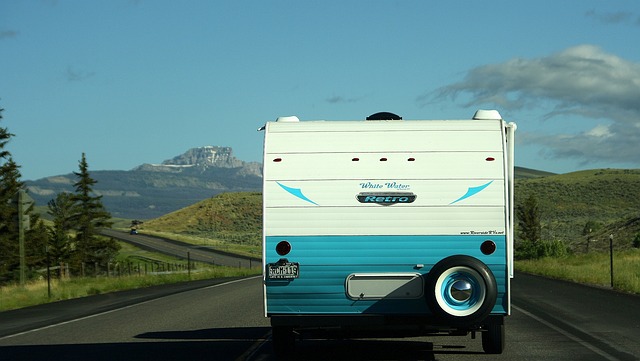
Updated July 2022.
When buying a caravan, you should ensure you have checked it is free from issues that could potentially be dangerous, or make it impossible or expensive to insure.
As a caravan is part vehicle and part domicile, there are a number of things that can go wrong, so checking for flaws before you hand over your money can save you time and expenses later on, as well as potentially helping to prevent accidents and injury.
Essential information to obtain before inspection
Before you view a caravan, it is vital that you check all the appropriate credentials are in order. These include service and ownership history, as well as more specialised documentation such as gas and electrical certifications.
You should also make sure to find out the age of the caravan, and where it has been kept previously (i.e. whether it has been left exposed to the elements, or under cover), as well as how it has been used for travelling, as these will help identify specific issues you may need to address.
Inspecting a caravan – what you will need:
If you are inspecting a caravan, make sure to take the following items with you:
• Notepad and pen – to keep records of anything you uncover
• Tape measure – to check the specifications are accurate
• Camera (smartphone cameras are OK) – to take plenty of photos for referral
• Torch – to check underneath the caravan and other less accessible areas
• Damp meter – to check moisture levels in the caravan
Common issues with second hand caravans
A second hand caravan is unlikely to be in mint condition. However, there is a huge difference between general wear and tear (scratches, fading, etc.) and issues that compromise the safety of the caravan (rust, damp or electrical issues, etc). There are many common issues to look out for when inspecting a caravan.
On the exterior, be sure to check the following:
• Is any rust visible on the exterior of the caravan (including underneath)?
• Are there any dents, scratches or other marks (including on the roof)?
• Are the tyres in good condition (i.e. with legal wear and tear)?
• Do all of the windows and doors open correctly?
• Does it look like any issues have been painted over?
• Are there any cracks in the chassis of the vehicle?
• Is the axle of the vehicle in good condition?
• Does the wiring and piping under the vehicle appear in good repair?
• Is the handbrake working properly?
• Does the jockey wheel wind up and down easily?
• Do awnings open and close as they should?
Inside the caravan, always check the following:
• Are all gas and electrical components or appliances in good working order?
• Are there any signs of damp? (Check with a damp meter)
• Is the floor of the caravan in a good state of repair?
• Does the caravan have a working smoke alarm and fire extinguisher?
• Are all doors, drawers and cupboards in good condition?
• Do the water sources work properly (e.g. shower, sink, etc.)?
• Can the caravan be locked securely?
Insurance for caravans – important considerations:
Unlike car insurance, caravan insurance in Ireland isn’t a legal requirement. However, car insurance often doesn’t cover caravans, meaning you would need to take out a separate caravan insurance policy to be protected. Even car insurance policies that do include caravans often have restrictions on weight or size, so it’s important to check you have the right cover.
There are two main categories of caravan insurance in Ireland, not including trailer tents or folding campers; these are ‘touring’, i.e. caravans being used to travel, and ‘static’, i.e. caravans being used as a holiday home in a fixed location, like a holiday park. Each type of insurance will have its own exclusions, but you should make sure:
• There are no restrictions on the age of your caravan
• The contents are covered
• Your awning is covered
• Damage to your caravan whilst being towed is covered
Increasing the security of your caravan will not only give you peace of mind, it could also reduce your insurance premiums. Methods to improve caravan security include the following:
• Clamp the wheels of your caravan when not in use
• Use a hitch lock on your tow bar when not in use
• Install an alarm
• Add a tracking device to your caravan
• Lock down the rear corner of touring caravans – security tags and corner steady locks
You should also review the usage cover when insuring your caravan – this means ensuring you have accurately disclosed whether you intend the caravan to be ‘touring’ or ‘static’, and whether anyone other than yourself will be using the caravan.
Other considerations should include whether the caravan will be visible or hidden, and sheltered or exposed to the elements, as you may need to include additional cover for storm damage or the theft of valuables. This 100-point checklist is a good source to follow for questions to ask when inspecting a caravan prior to purchase.
Always review your policy regularly
It is generally considered good practice to review all your insurance policies regularly, to make absolutely certain you are covered in the event of you needing to make a claim.
If your ‘touring’ caravan is becoming ‘static’ or vice-versa, if you are thinking of upgrading your caravan, or if you simply haven’t reviewed caravan insurance policy prices for a while, you should definitely review your policy, to see if your cover will be affected or whether you could get a better deal.
Help with caravan insurance quotes
If you’re buying a caravan and looking for an Irish caravan insurance company, talk to the expert team at OBF, who can advise on the best caravan insurance policy for your needs.